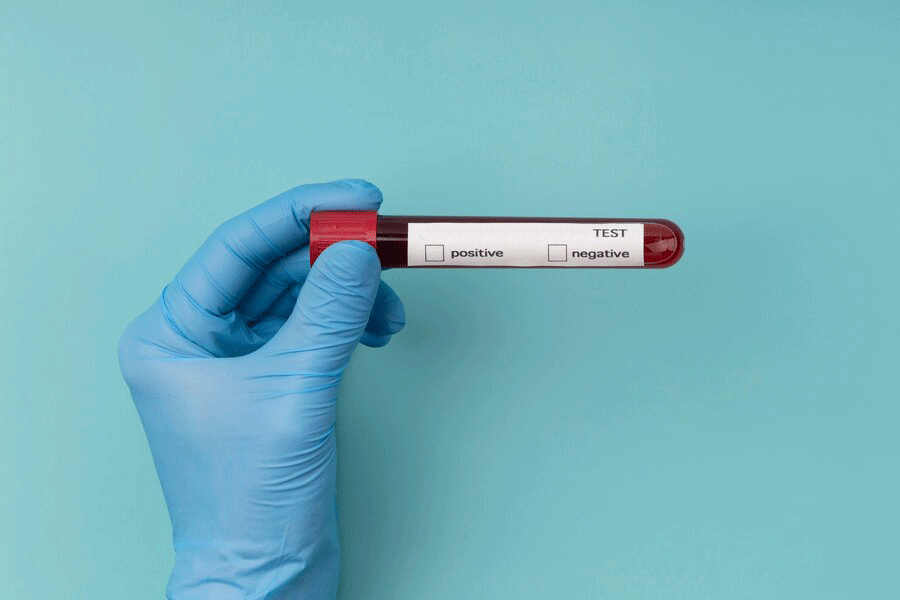
Sexually transmitted diseases (STDs) are a prevalent health concern worldwide, affecting individuals of all ages and backgrounds. While these infections are often associated with discomfort and discomfort, their impact can extend far beyond immediate symptoms. Understanding the connection between STDs and male fertility is crucial, as well as recognizing the importance of regular STD testing in Fairfield, CT.
Sexually transmitted diseases (STDs), often called sexually transmitted infections (STIs), constitute a diverse group of infections that can be transmitted through sexual contact. These infections are caused by various microorganisms, including bacteria, viruses, or parasites, and they don’t discriminate based on gender. Awareness of the common modes of STD transmission and seeking accurate STD testing in Fairfield, CT, at facilities such as DOCS Urgent Care & Primary Care Fairfield is crucial for safeguarding individual and public health.
Here’s how people commonly contract STDs:
Engaging in sexual activity without using barrier methods such as condoms or dental dams significantly increases the risk of contracting and transmitting STDs. Barrier methods provide a physical shield that can prevent the exchange of bodily fluids containing infectious agents. Consistent and correct condom use during sexual intercourse can greatly reduce the risk of STD transmission.
Having multiple sexual partners or engaging in sexual activities with individuals whose sexual history is unknown can substantially heighten the risk of exposure to STDs. The more sexual partners one has, the higher the likelihood of encountering someone with an undiagnosed or untreated STD. Responsible sexual behavior includes open and honest communication with partners about sexual history and potential risks.
Intravenous drug use, particularly when sharing needles or syringes, is a high-risk behavior that can lead to the transmission of bloodborne STDs such as HIV or hepatitis B and C. These infections can be easily passed from one person to another through contaminated injection equipment. Access to sterile needles and accurate STD testing in Fairfield, CT, is vital for preventing such transmissions.
Some STDs can be transmitted from an infected mother to her child during childbirth or breastfeeding. Preventing this mode of transmission necessitates appropriate prenatal care and testing for pregnant individuals to identify and manage potential infections, ensuring the health of both mother and baby.
Certain STDs, like herpes and HPV, can be transmitted through skin-to-skin contact with an infected area, even without penetrative sexual intercourse. These infections can affect any part of the body that comes into contact with the infected skin, highlighting the importance of awareness and STD testing in Fairfield, CT.

Sexually transmitted diseases (STDs) are a concern for immediate health and can have long-term consequences, including potential impacts on male fertility. While many individuals associate STDs with uncomfortable symptoms and short-term health issues, some of these infections can cause substantial harm to a man’s reproductive system. Awareness of the potential risks associated with STDs and the specific infections that can affect male fertility is essential.
Here are some STDs that are linked to male infertility:
Chlamydia and gonorrhea are two of the most common bacterial STDs globally and are also among the culprits that can significantly impact male fertility. These infections often fly under the radar because they can be asymptomatic, meaning individuals may not experience noticeable symptoms. However, when left untreated and undetected through accurate STD testing in Fairfield, CT, chlamydia and gonorrhea can wreak havoc on the male reproductive system.
Chlamydia can ascend from the urethra into the epididymis, a coiled tube near the testicles. This can lead to epididymitis, a painful inflammation that can impair sperm function and motility. Over time, if left untreated, chlamydia-related epididymitis can lead to permanent scarring and infertility.
Gonorrhea, too, can cause epididymitis and lead to similar fertility issues. The bacteria responsible for gonorrhea can ascend into the epididymis and cause inflammation. When left untreated, this condition can cause scarring, obstructing the passage of sperm.
Syphilis, a bacterial STD, can progress through distinct stages, each with its symptoms and complications. In the advanced stages of syphilis, it can affect various organs, including the testicles. While primary and secondary syphilis are associated with symptoms such as sores and rashes, the latent and tertiary stages can lead to more severe health problems.
In some cases, syphilis can cause gummatous syphilis, leading to soft, tumor-like growth in various tissues, including the testicles. This can result in testicular damage and potential fertility issues.
A recurring question among men is, “Does HPV cause male infertility?” This concern is valid, considering the potential consequences of HPV infection. While HPV may not directly cause infertility in males, understanding its impact on fertility is crucial. HPV, a common sexually transmitted infection, is primarily known for its association with genital warts and its role in various cancers, including cervical cancer in women.
However, it’s important to recognize that certain high-risk strains of HPV can also affect male reproductive health. The direct link between HPV and male infertility is less clear than in some other infections, which can lead to epididymitis and subsequent fertility issues in men. However, HPV-related complications can indirectly impact male fertility. For instance, if an HPV infection leads to the development of cancer, the treatments involved, such as surgery or radiation therapy, can adversely affect reproductive function.
Therefore, when facing HPV-related health issues, men should consider discussing potential fertility preservation options with their healthcare providers to address the question, “Does HPV cause infertility in males?” and take proactive measures to safeguard their reproductive health.
HIV, the virus responsible for AIDS, primarily targets the immune system. While it doesn’t directly impact male fertility, the medications used to manage HIV can have side effects. Some antiretroviral drugs may affect hormone levels or cause sexual dysfunction, potentially complicating fertility efforts. This underscores the importance of accurate STD testing for individuals at risk of HIV.
Regular STD testing in Fairfield, CT, ensures early detection, allowing for timely treatment and managing potential side effects, helping individuals safeguard their overall health and reproductive well-being.
Herpes, caused by the herpes simplex virus (HSV), typically presents with painful sores or blisters. While herpes causes infertility only in indirect ways, recurrent outbreaks can lead to psychological stress and sexual dysfunction, which may indirectly affect fertility.
Accurate STD testing in Fairfield, CT, is essential for individuals concerned about herpes status. Knowing your herpes status can help you proactively manage outbreaks and mitigate their potential impact on your emotional and sexual well-being, ultimately supporting your fertility journey.
Mycoplasma genitalium is a lesser-known sexually transmitted infection that has been associated with conditions like urethritis and prostatitis in men. In some cases, this infection can lead to inflammation in the male reproductive tract, potentially impacting fertility. Accurate STD testing in Fairfield, CT, is critical for individuals who suspect they may have been exposed to mycoplasma or are experiencing symptoms such as discomfort or pain in the genital area.
Early detection through accurate STD testing and appropriate treatment can help address inflammation and reduce the risk of fertility-related complications, ensuring better reproductive health outcomes.

Sexually transmitted infections (STIs) can indirectly contribute to male fertility issues in several ways beyond the direct impact on the reproductive system. Understanding these indirect factors is crucial for individuals seeking to conceive and maintain good reproductive health:
The physical symptoms of an STI, such as genital sores, ulcers, or inflammation, can cause significant pain and discomfort. This discomfort can lead to sexual dysfunction, affecting a man’s ability to engage in sexual activity and, consequently, conceive. Pain during sex can be a barrier to achieving pregnancy, as it may reduce the frequency of intercourse. This is one of the indirect ways herpes causes infertility.
An STI diagnosis often comes with emotional and psychological stress. The stigma, fear, and anxiety associated with having an STI can disrupt sexual function and overall well-being. High stress levels can lead to sexual dysfunction, impacting a man’s ability to perform sexually and conceive with his partner. Seeking emotional support and counseling can be essential for managing the psychological aspects of an STI diagnosis.
Some STIs, particularly those that cause discomfort or pain, can diminish sexual desire or libido. A decreased interest in sexual activity can result in less frequent intercourse, reducing the chances of conception. Addressing the underlying infection and its symptoms can help restore normal sexual desire and function.
The presence of an STI can strain a romantic relationship. The need for open communication about the infection, concerns about transmission, and the emotional toll of a diagnosis can lead to relationship challenges. Relationship stress can indirectly affect fertility by causing tension and reduced intimacy between partners.
In some cases, individuals may delay seeking testing and treatment for STIs due to fear or lack of awareness. Delayed diagnosis and treatment can allow the infection to progress, potentially causing more severe symptoms and complications that may impact fertility. Early and accurate STD testing in Fairfield, CT, is crucial for timely intervention and reducing the risk of indirect fertility issues.
If left untreated, some STIs can lead to secondary infections or complications. For example, untreated chlamydia or gonorrhea can progress to conditions like epididymitis or prostatitis, directly affecting the male reproductive system and fertility. Prompt STD testing in Fairfield, CT, and treatment can prevent the development of these secondary issues.
Safeguarding male fertility from the potential impact of sexually transmitted diseases (STDs) involves taking proactive measures to reduce the risk of infection and ensuring early detection through STD testing in Fairfield, CT.
Prioritizing your reproductive health is essential. Here are the steps you can take:
Consistently and correctly using condoms during sexual activity can significantly reduce the risk of contracting or transmitting STDs. Barrier methods like condoms create a physical barrier that prevents the exchange of bodily fluids containing infectious agents. Incorporating condom use into your sexual practices, especially with new or multiple partners, is a responsible approach to protect both yourself and your partners. Remember that condoms are readily available at many locations in Fairfield, CT, including clinics and pharmacies.
Vaccines are available for some STDs, such as human papillomavirus (HPV) and hepatitis B. Discuss with your healthcare provider whether these vaccines are appropriate for you. HPV vaccines are crucial, as certain high-risk HPV strains have been linked to penile cancer, among other health concerns. Ensuring you are up-to-date on recommended vaccinations is a proactive way to prevent STD-related complications.
Regular STD testing is essential, especially if you are sexually active with multiple partners or have a new partner. Reliable clinics such as DOCS Urgent Care & Primary Care Fairfield offer accessible and confidential STD testing in Fairfield, CT. Early detection and treatment of STDs can prevent complications affecting male fertility. Regular testing protects your reproductive health and contributes to the overall prevention and control of STDs in your community.
Communication with sexual partners about sexual health is critical. Discussing your sexual history, STD testing in Fairfield, CT, and safer sex practices can help create a shared commitment to maintaining sexual health. Being open and honest about your own STD status and encouraging partners to do the same fosters a safer sexual environment.
Limiting sexual activity to a mutually monogamous relationship with a partner who tested negative for STDs can reduce the risk of infection. Ensure that you and your partner are regularly tested and remain faithful to each other to minimize the risk of exposure to STDs.
Routine visits to your healthcare provider for sexual health checkups are advisable, even when you are not experiencing symptoms. Healthcare providers offer comprehensive STD testing in Fairfield, CT, and counseling services to help individuals make informed decisions about their sexual health.

Regular testing for sexually transmitted diseases (STDs) is fundamental to responsible sexual health management. Healthcare providers offer accessible STD testing in Fairfield, CT, and men must understand why regular testing is essential. Let’s explore why men should prioritize regular STD testing, emphasizing the importance of early detection, prevention of complications, protection of partners, and peace of mind.
One of the most compelling reasons men undergo regular STD testing in Fairfield, CT, is the prevalence of asymptomatic infections. Many STDs, including chlamydia, gonorrhea, and human papillomavirus (HPV), often do not present noticeable symptoms, especially in the early stages of infection. This means that individuals can be carriers of these infections without being aware of it.
Regular STD testing is a proactive measure to detect these silent threats. By testing regularly, men can identify infections that would otherwise go unnoticed until they develop into more severe health issues or complications. Early detection is the key to timely treatment, preventing the spread of the infection to others and reducing the risk of long-term health consequences.
Timely treatment of STDs is not only about stopping the infection but also about preventing complications. If left untreated, certain STDs can lead to severe health problems, some of which can affect male fertility.
For example, chlamydia and gonorrhea can cause epididymitis, a painful inflammation of the epididymis, resulting in scarring and obstructed sperm flow. Over time, untreated chlamydia or gonorrhea can lead to male infertility. Human papillomavirus (HPV) has been linked to penile cancer, while syphilis can progress to more advanced stages affecting various organs.
Regular STD testing in Fairfield, CT, enables catching these infections early, allowing for timely treatment that can prevent complications. It’s not just about preserving reproductive health but also about safeguarding overall well-being.
Getting tested for STDs isn’t just about your health; it’s also about protecting your sexual partners. If you carry an STD without knowing it, you could unwittingly transmit the infection to others during sexual activity. This can have serious consequences, particularly if the infection can lead to severe health issues.
By regularly undergoing STD testing in Fairfield, CT, you not only take responsibility for your health but also demonstrate a commitment to the well-being of your sexual partners. Open communication about sexual health, including sharing your testing history, is an important part of responsible sexual behavior.
Knowing your STD status provides peace of mind. It allows you to make informed decisions about your sexual health and practices. When you know your STD status through STD testing, you can take appropriate precautions to protect yourself and your partners.
For individuals who test negative for STDs, this knowledge can reinforce the importance of safe sex practices and regular STD testing in Fairfield, CT. It can also provide the confidence to engage in sexual activity without unnecessary worry.
For those who test positive, knowing their status empowers them to seek treatment promptly, take measures to prevent further transmission, and manage their sexual health effectively. It also enables them to be transparent with their sexual partners, fostering trust and responsible behavior within relationships.
Taking proactive steps to protect your sexual health and fertility is vital. Regular STD testing in Fairfield, CT, and open communication with healthcare providers can ensure that you stay informed and take the necessary precautions to maintain your reproductive health and overall well-being. At DOCS Urgent Care & Primary Care Fairfield, we offer rapid and confidential STD tests in Fairfield, CT, with results in as little as 20 minutes.
Visit DOCS Urgent Care & Primary Care Fairfield today for fast STD testing in Fairfield, CT!
During this surge in COVID-19 cases, our primary focus is meeting the high demand for tests, and we are seeing higher than usual wait times. This means we are unable to answer most phone calls. Please know that our teams are working very hard during this time to care for as many patients as safely as possible. Please click the button below for answers to common questions. We appreciate your understanding.